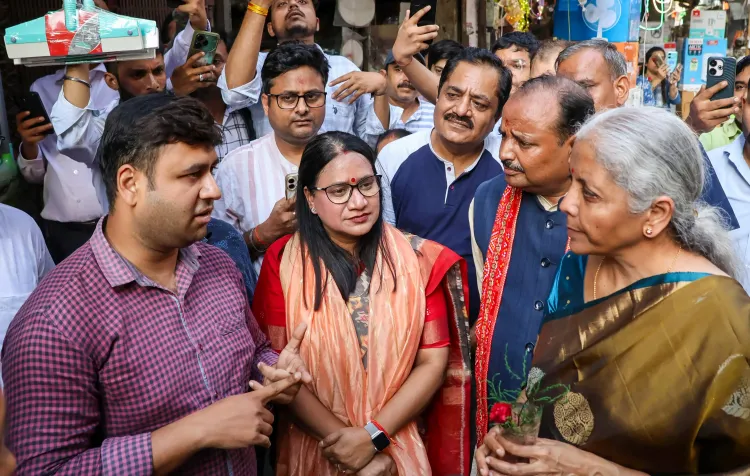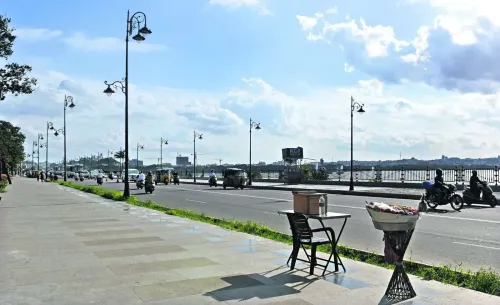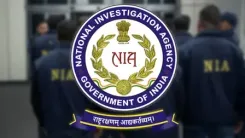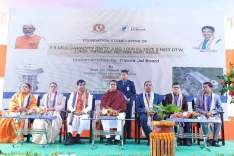Will GST Reforms Enhance Purchasing Power and Benefit All Sectors?

Synopsis
Key Takeaways
- GST reforms are set to boost purchasing power.
- Prices of essential goods are expected to decrease.
- The healthcare sector will see significant benefits.
- Tourism in Sikkim will be positively impacted.
- Low-income families will benefit from zero percent GST on essentials.
New Delhi, Sep 22 (NationPress) On Monday, traders and business proprietors expressed their support for the innovative GST reforms, emphasizing that these changes will enhance purchasing power, reduce prices on vital items, and significantly stimulate the economy.
They commended Prime Minister Narendra Modi for implementing these reforms during the festive season.
S.K. Sarda, who owns a branded clothing store, mentioned that the revised GST framework has streamlined the system and addressed previous issues related to multiple taxation.
He noted that the government has already amassed close to Rs 55 lakh crore from GST, which is being utilized for national development and defense initiatives.
"The new reforms are set to increase disposable income for the populace. Approximately Rs 2.5 lakh crore will circulate in the market, with this amount expected to triple as it flows through the economy. This will result in a turnover of nearly Rs 7 lakh crore, significantly boosting employment and income in various sectors," he stated.
Ramesh Periwal, who operates a diagnostics business in Sikkim and serves as the president of the local Chemists Association, remarked that the reforms will particularly benefit the healthcare sector.
"The cost of medicines has decreased considerably. Certain drugs are now exempt from tax, while others previously taxed at 12 or 18 percent have been reduced to 5 percent," he explained.
"Hospitals will also save money on essential reagents and chemicals that are now taxed at a lower rate, and this advantage will be passed on to patients," he continued.
Periwal emphasized that the reforms will also significantly benefit tourism in Sikkim, as hotel accommodations priced below Rs 7,500 will now incur lower GST.
"Tourism is crucial to Sikkim’s economy, and these adjustments will attract more visitors, invigorating the industry," he stated.
Vinay Chandra, a small business owner, expressed relief over the decision to categorize milk and other daily food items under the zero percent GST.
"Previously, many essentials had a 5 percent GST, but now transitioning them to zero will directly help low-income families. This will also lower household expenses and aid family budgets," he noted.
Union Finance Minister Nirmala Sitharaman visited Laxmi Nagar in the national capital following the rollout of the new GST reforms, where she engaged with shopkeepers and customers.
During her visit, the Finance Minister remarked: "The feedback regarding the GST reforms has been overwhelmingly positive. Even though it is a market holiday today, numerous shops remain open. I observed that shopkeepers are transferring the benefits of GST reductions to their clients."
She added that the measures taken by the Narendra Modi government have relieved both the public and traders, leading to widespread satisfaction with the reforms.










